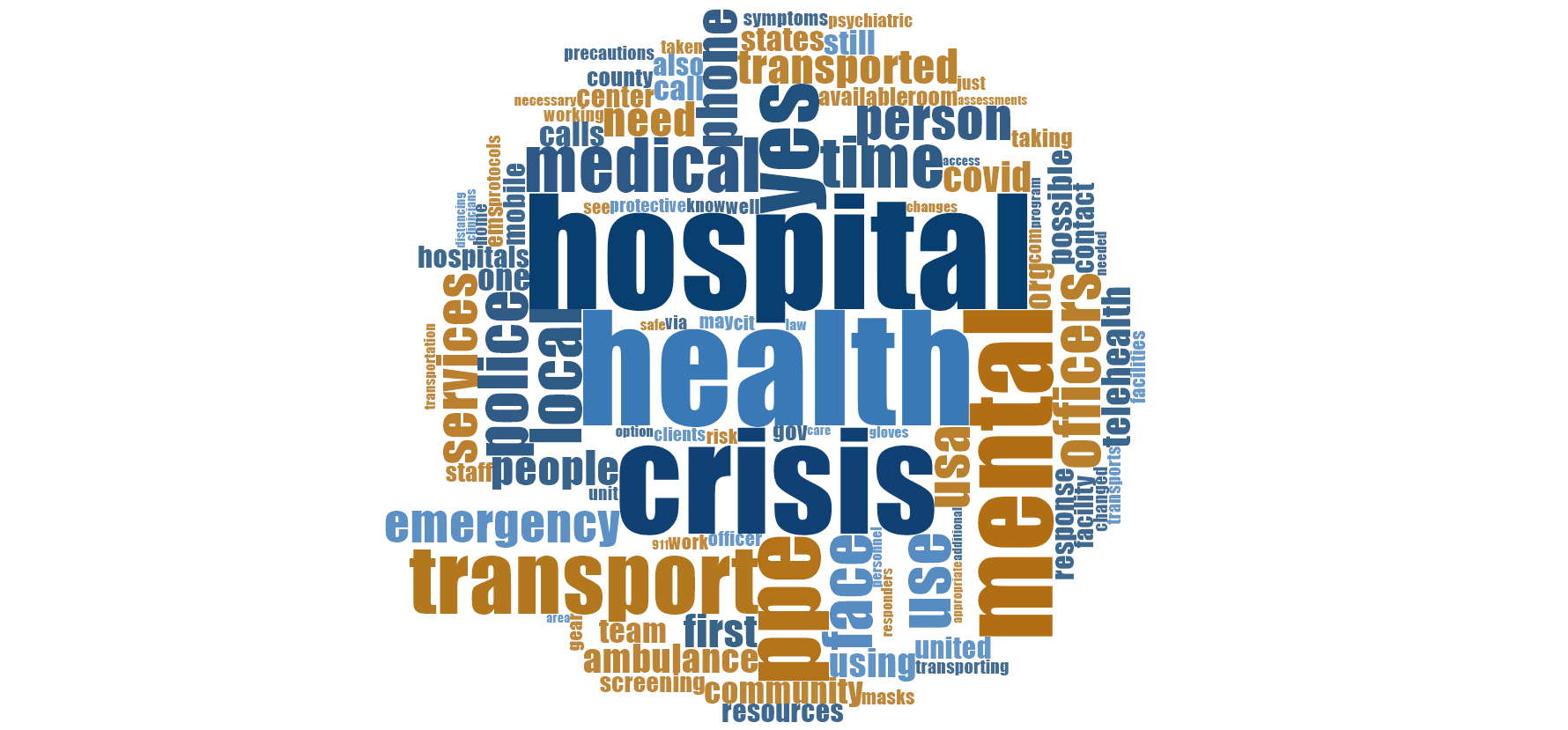
- Home
- Research and Reports
CIT RESEARCH and REPORTS
ResearchIs CIT Evidence-Based? A recently published article in the journal Behavioral Sciences and the Law summarizes the research on CIT to date, considers whether CIT can be considered evidence-based and concludes the answer is "yes" for some important CIT outcomes. Read more... Study provides support for the CIT Volunteer Specialist Model. A study led by Michael Compton, M.D., M.P.H. and published in Behavioral Sciences and the Law found the volunteer/specialist approach is associated with better outcomes with regard to key attitudes, skills and behaviors. Read more... CRISIS INTERVENTION TEAM (CIT) Methods for Using Data to Inform Practice: A Step-by-Step Guide is available for download from the Substance Abuse Mental Health Services Administration (SAMHSA) website. CIT International played a key role in the development of this guide to support communities in evaluating their CIT programs. We are grateful to SAMHSA and our project partners at GAINS Center/Policy Research Associates, Inc and the National Council Behavioral Health for making the guide possible and supporting communities in their CIT program efforts. Read more... | Position PapersCIT International has produced 4 Position Papers that address many issues facing communities pertaining to CIT Training: CIT: Non-Law Enforcement participants in CIT Training CIT Int Statement on Training during COVID 19 - On-line Training.pdf |

Mental health crisis response in the context of the COVID-19 pandemic. During March 2020, CIT International sent out a link to a survey asking how your communities are adjusting mental health crisis response in the context of the COVID-19 pandemic. We received 73 responses representing law enforcement, corrections, behavioral health and advocacy. As one respondent indicated, “There is certainly a feeling that we are "building the plane as we are flying it" and creating protocols as we go with this,” many communities are adjusting quickly to a very challenging new reality.
Reports and Documents
The Community Responder Model:
How Cities Can Send the Right Responder to Every 911 Call
The Center for American Progress provides a report on establishing a new branch of civilian first responders
and reducing over reliance on police.
Civilian Crisis Response: A Toolkit for Equitable Alternatives to Police
CIT is about building community crisis services to reduce the burden that has been placed on law enforcement to respond to crisis calls for service that do not require such response. Read about the new resource from the Vera Institute on building civilian crisis response teams.
CIT International's Executive Director supplies a foreword from a global crisis intervention team perspective.
Interdepartmental Serious Mental Illness Coordinating Committee (ISMICC)
A US Federal Committee of ten federal agencies and 14 non-federal subject matter experts provide a report to the United States Congress on mental health services coordination of the federal agencies and recommendations.
ISMICC Report - The Way Forward
Open Letter in Response to Executive Order in Response to Safe Policing for Safe Communities
CIT International join with national organizations in an open letter.
Taking the Lead: Investing in Community Crisis Response / Continuum
Eight countries come together to develop a declaration on the core elements of systemic quality crisis care.
Read the International Declaration
National Guidelines for Behavioral Health Crisis Care - A Best Practice Toolkit
U.S. SAMHSA puts forth a document detailing the best practices of crisis response.
Behavioral Health Crisis Alternatives:
Shifting from Police to Community Responses
Vera Institute of Justice provides a report on crisis response options that reduce law enforcement's responsibility for responding to all crises.
Crisis Services: Effectiveness, Cost-Effectiveness, and Funding Strategies
U.S. SAMHSA puts forth a report that presents evidence in support of crisis services including crisis stabilization, community-based residential crisis care, and mobile crisis response.
Crises Now: Transforming Services is Within Our Reach
National Action Alliance for Suicide Prevention puts forth a report providing recommendations for transforming crisis response systems.
Crisis Response Services for People with Mental Illness or Intellectual and Developmental Disabilities
Vera Institute of Justice provides a report of a review of the literature on police-based and other first response models.